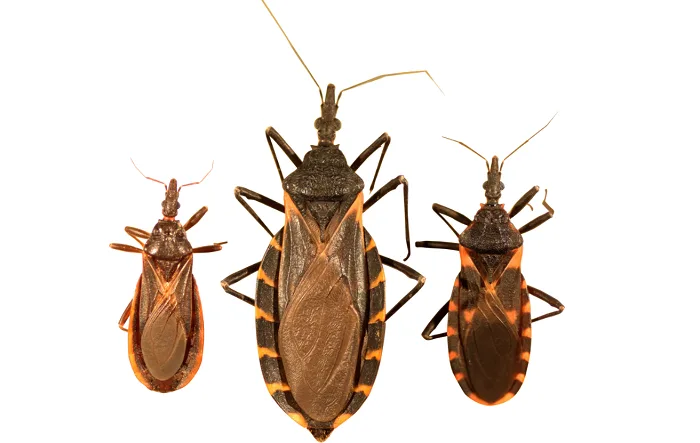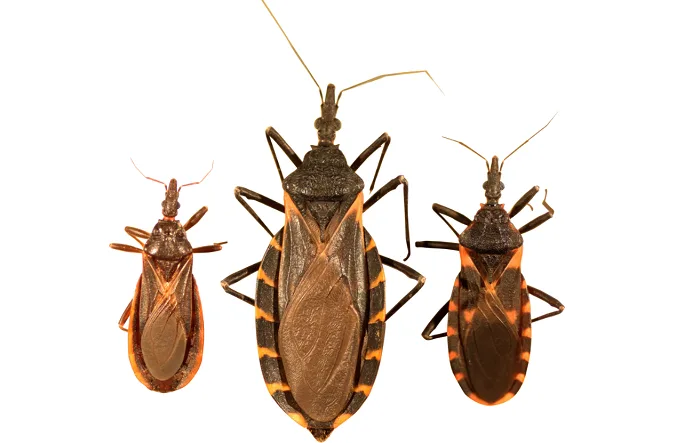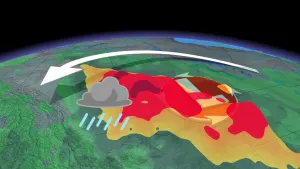
A blood-sucking, face-biting bug is spreading through the US
Symptoms of an infection can occur up to 20 years after being bitten.
Health officials have confirmed the "kissing bug" in Delaware, according to a recent report by the U.S. Centre for Disease Control (CDC).
It's the first time it has been documented in the state.
The insect -- Triatoma sanguisuga -- feeds on the blood of animals and humans. It's sometimes called the "face-sucking" bug because it prefers to bite near the eyes.
While kissing bug bites aren't dangerous, the insect can transmit a parasite that causes a serious but treatable condition called Chagas disease.
SEE MORE:
In July 2018, a Delaware family in Kent County contacted authorities when their daughter's face was bitten by an unknown bug while watching TV. The bug was collected and sent to state officials.
CDC testing of the Delaware specimen confirmed the species. The bug tested negative for the parasite that causes Chagas disease.
The girl did not become ill as a result of the bite.
Chagas disease has been steadily spreading from Central and South America to the U.S. It is listed as "established" in 28 states. It has not been recorded in Canada.

Three types of 'kissing bugs', all of which can be found in the U.S. Experts say the risk of contracting Chagas, which can be transmitted by kissing bugs, in Canada is low. Canadains who become infected with Chagas normally do so when travelling outside of the country. Source: Wikipedia.
SYMPTOMS CAN TAKE 20 YEARS TO APPEAR
Early indicators of Chagas disease are similar to those of the flu, consisting of fever, headaches, and rashes -- all of which can last for several weeks.
According to the American Heart Association, between 60 and 70 percent of infected patients develop no symptoms.
Without treatment, the disease can progress to a "chronic" stage, with symptoms presenting 10 to 20 years post infection. In the later stages, irregular heartbeat and heart failure are possible.
Approximately 30 percent of people infected with Chagas disease develop heart problems, Global News reports.
Chagas disease can be confirmed with a blood test and treated with medication. It is not contagious.
LOW RISK TO CANADIANS
Canadian biologist Jason Tetro told Global News it's unlikely kissing bugs will spread into Canada, partly due to the climate.
“We have good shelters, we have windows screened off and our climate is helping us. We’re a long way from seeing it become endemic in the U.S.,” he told the publication.
Experts say the likelihood of contracting a Chagas infection while in Canada is low.










